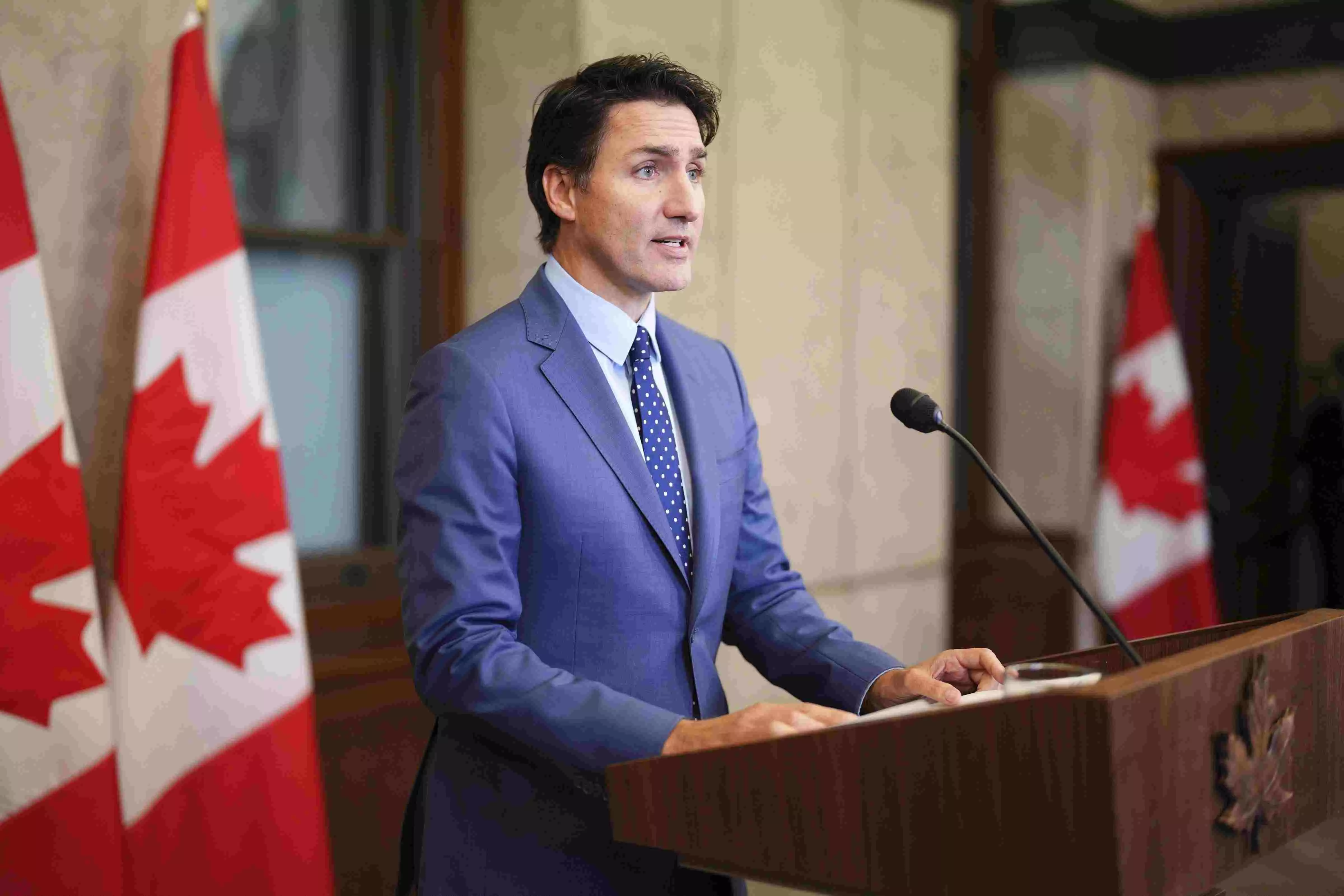Navigating choppy waters
Amid escalating tensions and bilateral ties hitting the nadir, the Canadian government should display greater maturity and dexterity in handling relations with India

Canadian Prime Minister Justin Trudeau is surely playing in the hands of the separatists in Canada, and that was more than visible when Canada expelled a senior Indian diplomat (September 18) for his alleged complicity in the murder of activist Hardeep Singh Nijjar at the Guru Nanak Sikh Gurdwara at Surrey, off Vancouver, British Columbia, in June this year. Nijjar, head of Khalistan Tiger Force (KTF), was wanted in four cases in India for his separatist activities having strong linkages with Sikhs for Justice (SFJ), run by another activist Gurpatwant Singh Pannun.
Earlier, Canadian Prime Minister Trudeau raised his ‘deep concerns' on the matter while speaking in the Parliament. Choosing a forum like the Parliament for such issues also looks surprising and far from normal. He also claimed to have raised those concerns with Prime Minister Modi ‘personally and directly’. Trudeau described the killing of a Canadian citizen on the country's soil as an ‘unacceptable violation of sovereignty’. On its part, the Indian government has rejected claims made by the Canadian Prime Minister, calling them ‘absurd and motivated’. India, at the same time, has urged Canada to take effective and prompt legal actions against all anti-India elements operating from Canadian soil. Earlier, Prime Minister Modi had also told Justin Trudeau during their pull aside meeting in Delhi on the margins of the G20 leaders’ summit about its concerns over the anti-India activities in Canada. In view of Canada’s expulsion of the Indian diplomat, the Indian government has rightly retaliated and expelled two Canadian diplomats.
Meanwhile, US-based senior Defence Analyst Derek J Grossman opined (September 19) that Canada’s allegations regarding the Indian involvement in the shooting of Nijjar could be the most significant test of strength of US-India partnership. Furthermore, an economics professor at Carleton University in Ottawa, Vivek Dehejia, termed Canada's allegations against India as explosive. There are also numerous posts in social media describing the allegations by Trudeau against India as unproven.
The Indian External Affairs Ministry, in the meantime, countered Canadian PM's claim on killing of Nijjar, pointing out that Canadian political figures have openly expressed sympathy for such elements. Senior Canadian journalist, Tahir Aslam Gora, averred that expulsion of Indian diplomats has created a tough situation in the relations between India and Canada. He further said that this revelation could have been made earlier or may be later, only after the investigation was completed.
As a direct fallout of these developments, the indefinitely postponed talks between India and Canada on the Early Progress Trade Agreement (EPTA) are likely to witness a capricious end.
It is expected, as per some analysts, that India’s response will be disproportionate. Whatever space India was required to give due to diplomatic courtesies will soon be gone. Separatist terrorists can now be blocked at every turn, without Canada being able to respond. Their finances in India, their properties, their bank accounts and even their relatives who receive money from Canada — everything could now be under the scanner of the investigative agencies. No one with terror leanings/sympathies would be easily able to leave India for Canada and vice versa.
Meanwhile, diplomats familiar with Canada reckon that Canada has to take the blame for souring relations with India which is now at an all-time low. Trudeau is indeed an amateur in diplomacy and statesmanship, and due to his error of judgement and lack of maturity, his country has come to such a pass. He is clearly to the tune of extremists and their supporters.
There is also a serious and lurking suspicion that Pakistan’s Inter-Services Intelligence (ISI) has such elements on their payrolls, and their (ISI) script is being blindly read by Trudeau and the separatist elements. This exhibits Trudeau’s political immaturity and incapability to handle a crisis of this delicate dimension and of titanic proportions.
As of now, bilateral ties are looking beyond repair. Unless a very robust and well thought out diplomatic effort is launched, Canada is going to suffer, and sadly, those Indians with relatives in Canada will have difficulty in travelling, receiving remittances etc. The picture will be further clear as the ongoing diplomatic row unfolds in the days to come. The onus for mending ties rests on Trudeau. He has to rein in the unwieldy and anti-national lot who are vitiating the atmosphere and spreading hatred.
Meanwhile, the US, Australia and the UK expressing “deep concern” on the Canadian Prime Minister’s revelation shows an irrational knee jerk reaction on their part. Their selective amnesia will not help at all when they themselves face terror threats on their soil. It’s time that global terror concerns are jointly and universally addressed, instead of taking a one sided and hasty stance, as in the case under reference.
The writer is a retired IPS officer, Adviser NatStrat, and a former National Security Advisor in Mauritius. Views expressed are personal



